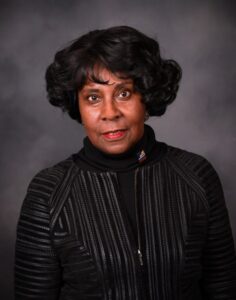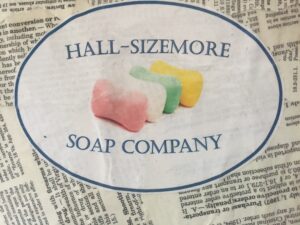
by Dick Hall-Sizemore
The Virginia Supreme Court has again ruled against a local government for violating the Freedom of Information Act (FOIA).
The case arose as a result of Deborah Wahlstrom deciding to attend a day-long retreat of the Suffolk City School Board focused on board training and strategic planning. The meeting was publicly advertised and was to be held in a city school. At some point after she arrived and took a seat in the room in which the meeting was to be held, she was told that members of the public could not be in the room and could only view a video feed of the meeting from another room. She remained in her seat. Board Chair Judith Brooks-Buck then approached her and told her that she couldn’t be there because “this is a closed meeting.” Subsequently, she and the Superintendent of Schools John Gordon told her to exit the room and return to the lobby. She refused, citing her legal right to be present in the room.
As the discussion continued and got a little more heated, the superintendent threatened to call the police. Wahlstrom remained in the room. The police were called and the superintendent explained to the police that Wahlstrom was “an enemy of the school division.” The police officer escorted Wahlstrom out of the building and told her she had to leave the property entirely. She was not even allowed to view the meeting virtually.
Wahlstrom filed a complaint with the Suffolk Circuit Court. The trial court found in favor of Wahlstrom, saying it was “shameful that…a citizen was threatened with arrest for trying to assert her rights to be in” the meeting room. The trial court awarded Wahlstrom $19,503.96 in attorneys’ fees.
The School Board appealed to the Supreme Court. (Either the board has a lousy attorney or it chooses to ignore legal advice.)
The Supreme Court unanimously upheld the decision of the trial court in favor of Wahlstrom. (The opinion can be found here.) The School Board had two arguments. First, it maintained that its requirement that members of the public view the meeting from another room was COVID-related, notwithstanding that the Executive Order relating to COVID restrictions had expired almost three weeks before the meeting. The Supreme Court made short work of that argument noting that evidence showed that members of the board were milling about the room, unmasked, and less than six feet apart.
In its next argument, the board contended that “VFOIA does not require that the public be allowed to be physically present at a public meeting and that any VFOIA obligation a public body owes the public regarding meetings is satisfied if the public body provides a virtual means for the public to view the meeting.” The court rejected out of hand that argument as well. It noted, “the plain and ordinary definition of ‘present’… suggests an actual, physical component. …. Thus, the plain and ordinary meaning of the words chosen by the General Assembly are consistent with the view that VFOIA affords citizens the opportunity to attend public meetings in person by actually entering into the physical space where the meeting is being conducted.”
The Court did allow that this obligation to allow the public into a meeting is “subject to a rule of reason.” If there is a topic of unusual interest, the public body is not required to abandon its usual meeting place and “rent an arena.” It is only required to provide “normal” in-person access and then take steps to provide additional members of the public access by other means. By the same token, the public body “may not select, design, or arrange a meeting room in a manner that artificially limits or removes the ability of the public to attend in person.”
Not only will Ms. Wahlstrom get the $19,503 first awarded by the circuit court, the School Board will also have to pay her attorneys’ fees associated with the appeal. It was a costly lesson.
This case follows one a month earlier in which the Virginia Supreme Court vacated a major zoning ordinance revision adopted by Fairfax County two years earlier, also during COVID restrictions. The county had acted on the revised zoning ordinance in a mostly virtual meeting. The county contended that it had the authority under emergency powers to act. The Supreme Court disagreed, pointing out that the county had operated under the former ordinance for 40 years and its modification after a five-year revision process “is not a time-sensitive matter, and its adoption is not and was not necessary to allow the County to continue operations.”
Note: I am indebted to Graham Moomaw and Virginia Mercury for alerting me to this story.
My Soapbox
The action of the Suffolk School Board to exclude a citizen from the meeting was unjustified. Nevertheless, I can sympathize with elected officials in their desire to meet sometimes away from public eyes and ears. Over the course of my career in state government, I have been in many meetings in which legislators and state officials were more candid and forthcoming with each other than they would have been if it had been a public setting. To accomplish things in government, there is often the need to compromise. And compromise, especially in recent years, is seen by partisans on both sides as “selling out.” Policymakers often need to be able to thrash issues out among themselves without worrying that anything they say may be taken out of context and used against them.
This issue is not a new one. It goes back to the time in which the Founding Fathers met in Philadelphia to frame a new government. At the beginning of the Constitutional Convention, the delegates adopted a rule of secrecy, “nothing spoken in the House [shall] be printed, or otherwise published, or committed without leave.” James Madison would not even tell Thomas Jefferson, who was in France at the time, what was being said and considered. As he explained to his friend, “It was thought expedient in order to secure unbiased discussion within doors, and to prevent misconceptions and misconstructions without, to establish some rules of caution which will for no short time restrain even a confidential communication of our proceedings.”
George Mason, another Virginia delegate, submitted another reason for the secrecy. As he explained in a letter to his son, “…the whole may have a very different complexion from that in which the several crude and undigested parts might in their first shape appear if submitted to the public eye.” He felt the delegates needed flexibility to change their minds and compromise. If the proceedings had been open to the public or published in the press, delegates may have felt committed to their first comments on proposals without having any room to maneuver for fear of being criticized publicly for flip-flopping or giving in on their principles.
The details of their deliberations did not start to come out until 1814 and Madison’s notes, the fullest account, were not published until after his death in 1836, almost 50 years after the Convention met.

Leave a Reply
You must be logged in to post a comment.